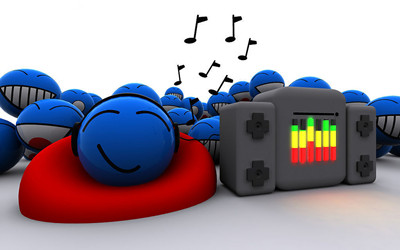This is Scientific American — 60-Second Science. I’m Christopher Intagliata.
Jay Z's "Tidal" platform promises listeners CD-quality streaming music, in all its 44.1 kilohertz, 16 bit glory—much better, they say, than compressed files, like mp3s. But why stop there? Neil Young's PonoMusic Store sells music that's even better than CD quality.
In a YouTube video for the service Young compares mp3 listeners to scuba divers, muddling around the seafloor. "You know you're walking around in the murk and there's big fish down there, that's kind of like listening to an mp3."
CD listeners are underwater, too. The only way to rise to the top, he says, is to dial up sample rate to over four times that of CD: to 192 kilohertz. "When you make it to 192, you actually break through the surface, and you're breathing air. And the feeling is different, it actually is a visceral relief. You feel good."
But… how good? What researchers, record producers, audiophiles, sound engineers, want to know is: "Is CD, compact disc, enough?" Joshua Reiss (RICE), who leads audio engineering research at Queen Mary University of London. "And the arguments seem to be never-ending."

Reiss took a stab at settling the argument with a meta-analysis—a study of studies—on whether people can really perceive better-than-CD quality sound. He analyzed data from 18 studies, including more than 400 participants and nearly 13,000 listening tests. Overall, listeners picked out the better-than-CD-quality track 52.3 percent of the time. Statistically significant, if not all that impressive.
But when Reiss isolated studies that trained listeners first and gave them a chance to feast their ears on the difference, their odds of picking the higher-quality track climbed to 60 percent. Suggesting there may actually be some perceptible difference... at least enough to convince Reiss to change his listening habits. "Yes I think I actually will, based on this." The analysis is in the Journal of the Audio Engineering Society.
Not that it will settle all arguments. "No, no never. But what I think it might do is allow the researchers to move on a little bit from this question and to start looking deeper into the causes of the perception." And for the audiophiles out there? It's no doubt music to their ears.
Thanks for listening Scientific American — 60-Second Science Science. I’m Christopher Intagliata.













